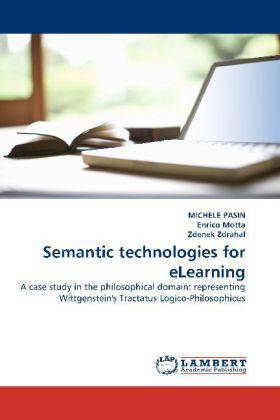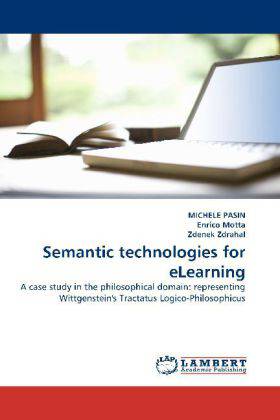
Door een staking bij bpost kan je online bestelling op dit moment iets langer onderweg zijn dan voorzien. Dringend iets nodig? Onze winkels ontvangen jou met open armen!
- Afhalen na 1 uur in een winkel met voorraad
- Gratis thuislevering in België vanaf € 30
- Ruim aanbod met 7 miljoen producten
Door een staking bij bpost kan je online bestelling op dit moment iets langer onderweg zijn dan voorzien. Dringend iets nodig? Onze winkels ontvangen jou met open armen!
- Afhalen na 1 uur in een winkel met voorraad
- Gratis thuislevering in België vanaf € 30
- Ruim aanbod met 7 miljoen producten
Zoeken
Semantic technologies for eLearning
A case study in the philosophical domain: representing Wittgenstein's Tractatus Logico-Philosophicus
Michele Pasin, Enrico Motta, Zdenek Zdrahal
Paperback | Engels
€ 77,95
+ 155 punten
Omschrijving
What does it mean for a student to come to an understanding of a philosophical standpoint and can the explosion of resources now available on the web support this process, or is it inclined instead to create more confusion? We believe that a possible answer to the problem of finding a means through the morass of information on the web to the philosophical insights it conceals lies in the process of narrative pathway generation. That is, the active linking of resources into a learning path that contextualizes them with respect to one another. This result can be achieved only if the content of the resources is indexed, not just their status as a text document, an image or a video. To this aim, we propose a formal conceptualization of the domain of philosophy, an ontology that would allow the categorization of resources according to a series of pre-agreed content descriptors. Within an e-learning scenario, a teacher could use a tool comprising such an ontology to annotate at various levels of granularity available philosophical materials, and let the students explore this semantic space in an unsupervised manner, according to pre-defined narrative pathways.
Specificaties
Betrokkenen
- Auteur(s):
- Uitgeverij:
Inhoud
- Aantal bladzijden:
- 288
- Taal:
- Engels
Eigenschappen
- Productcode (EAN):
- 9783838376134
- Verschijningsdatum:
- 12/08/2010
- Uitvoering:
- Paperback
- Formaat:
- Trade paperback (VS)
- Afmetingen:
- 152 mm x 229 mm
- Gewicht:
- 426 g

Alleen bij Standaard Boekhandel
+ 155 punten op je klantenkaart van Standaard Boekhandel
Beoordelingen
We publiceren alleen reviews die voldoen aan de voorwaarden voor reviews. Bekijk onze voorwaarden voor reviews.











